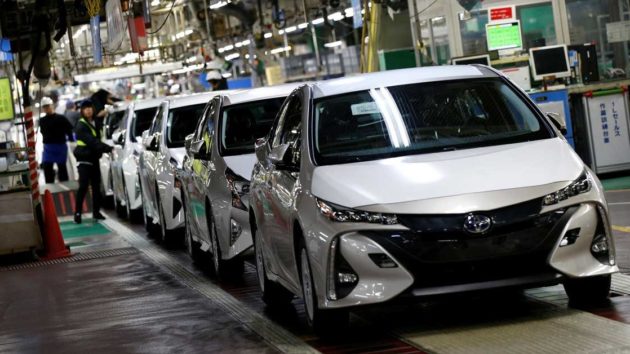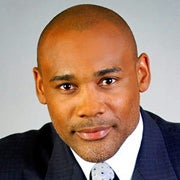Trump’s Fuel=Efficiency Reality Check Revs Up the American Economy
Despite rampant speculation that President Donald Trump’s trade policy might increase some car prices, how his regulatory relief agenda may lower sticker prices and increase safety goes largely ignored.
How did this happen? The Trump administration is revising the Corporate Average Fuel Economy standards imposed on automakers during the Obama era. In particular, they are no longer holding manufacturers to a 2025 fleet mandate of 54.5 miles per gallon.
When the rollback was first announced, Secretary of Transportation Elaine Chao declared it “a win for the American economy.” Then-EPA Administrator Scott Pruitt called it “good for consumers and good for the environment.”
While a victory for all consumers, it’s a particularly welcome relief to those in poor and minority communities looking to ascend the socio-economic ladder and get an equal shot at achieving the American Dream.
CAFE standards have been around for 40 years, but green crusaders in the Obama administration put them on steroids. During the Obama presidency, the industry was required to increase fuel efficiency by around nine miles per gallon. In 2012, it imposed a spike from 30.2 miles per gallon for a passenger car in model year 2011 to 60 miles per gallon over 14 years.
American car prices have risen steadily with higher CAFE standards. According to Heritage Foundation research, car prices rose while other big-ticket durable goods prices dropped.
“If vehicle prices had tracked furniture and appliance prices since 2007,” a 2016 Heritage study noted, “they would be 23.4 percent lower than they are today.”
Comparatively, the average cost of a car in the United States rose $6,200 above trending prices in other countries.
Higher prices lower opportunity. Those without much disposable income find themselves unable to afford new CAFE-friendly vehicles.
Using federal data, a National Automobile Dealers Association study concluded that between 3.1 and 14.9 million households might lack the credit necessary to buy a new vehicle under the original 2025 CAFE scenario. This fate would undoubtedly fall hardest on minority communities due to lower earnings.
And then there’s safety. One way to meet stringent fuel efficiency goals is to make vehicles smaller and lighter.
The Insurance Institute for Highway Safety explicitly warns that “bigger, heavier vehicles protect their occupants better.” That means those forced into the smaller cars are inherently less safe.
But all of this will at least help the environment, right? Maybe not.
Obama administration assertions about the effect of CAFE standards on climate change were both trivial and elusive. Then add mitigating factors such as poorer households keeping dirtier vehicles on the roads longer out of financial necessity.
Minority advocates embrace Trump’s CAFE relief. In a letter to Chao and Pruitt, the Project 21 black leadership network stated: “Excessive regulatory costs that make products unaffordable are one of the most significant non-racial obstacles to black economic progress … Increasing black hardship and jeopardizing driver safety for such a small payoff is simply irrational.”
Project 21 announced the policy shift was “Blueprint Compliant” with its new “Blueprint for a Better Deal for Black America”–that specifically recommended reforming CAFE standards–to improve black opportunity.
The industry also responded to consumer demand. Ford scaled back its CAFE-geared small sedans–retaining the Mustang and Focus Active crossover while favoring SUVs and light trucks. This is Ford’s family-friendly, workforce-ready, and consumer-focused fleet.
The Trump administration’s rollback of fuel efficiency mandates to favor the present-day economy over ambiguous predictions is a smart move. It promises more vehicles people want to safely transport their families, engage opportunities, and fuel the economy. It also respects the situations of the American consumer–particularly those at the lower rungs of the economic ladder.
COMMENTARY BY
Derrick Hollie
Derrick Hollie is president of Reaching America and host of Reaching America on Demand podcast. The organization addresses complex social issues impacting African-American communities. Twitter: @DJHollie.
RELATED ARTICLE: Working With Green Groups, Local Governments Use This Kind of Lawsuit to Get Cash From Oil Giants
Dear Readers:
With the recent conservative victories related to tax cuts, the Supreme Court, and other major issues, it is easy to become complacent.
However, the liberal Left is not backing down. They are rallying supporters to advance their agenda, moving this nation further from the vision of our founding fathers.
If we are to continue to bring this nation back to our founding principles of limited government and fiscal conservatism, we need to come together as a group of likeminded conservatives.
This is the mission of The Heritage Foundation. We want to continue to develop and present conservative solutions to the nation’s toughest problems. And we cannot do this alone.
We are looking for a select few conservatives to become a Heritage Foundation member. With your membership, you’ll qualify for all associated benefits and you’ll help keep our nation great for future generations.
ACTIVATE YOUR MEMBERSHIP TODAY
EDITORS NOTE: The featured image is by Toru Hanai/Reuters/Newscom




I would love to get a new car, however white Americans can get NO help with cars.